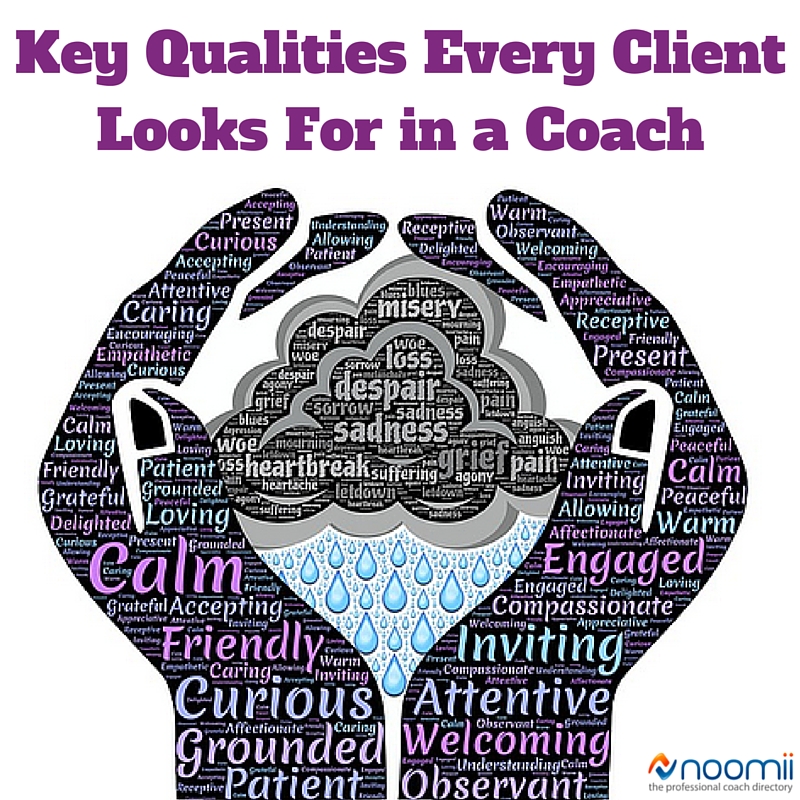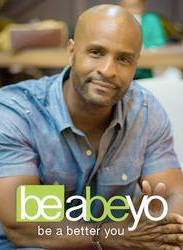Key Qualities Every Client Looks for in a Coach
 This is a guest post written by Tyrone Jones. Want to contribute? Check out the 2016 publishing calendar.
This is a guest post written by Tyrone Jones. Want to contribute? Check out the 2016 publishing calendar.
Today, as I look at my clients, I see such diversity in them and in the various social backgrounds they come from. Take, for instance, these three separate clients and scenarios and notice how each one comes from very different circumstances and backgrounds:
This is our first session together and as he sits down in front of me, he has a very discomforting and dejected look that shows on his face and in his body posturing. The look of stress and discontent that he wants to share to gain his comfort. He’s an Iranian male and for the three weeks since we’ve started, he’s now feeling better and smiling more from the progress and newfound confidence from our sessions.
She’s Italian, Caucasian, and in her late 20’s. Originally from California but now resides in Florida. A little into one of our conversations, she begins to cry from the pain that she’s caused others and endured herself from holding back truths and from not healing. Yet, she confides in me and shares with me more than she has with anyone else. It's now been 2 months of our sessions and it’s made such a difference in her. Fewer tears, less pain, and more joy is what she shows and shares.
She’s a 45 years old Cuban woman and he’s a 35 years old African American man. A very lovely couple but lately, their relationship has been rocky. They are dealing with some of the normal stress and problems of relationships but mainly in their communication. Both of them feel more comfortable to open their hearts and share with me more than their partner. Communication is what they need to work on with each other. It’s now been over 3 months and although their weekly sessions are over, we still do a monthly session. They have been communicating and growing better together than before that they are even considering marriage again.
So, with all these differences, how do we have sessions that assist them in their challenges and help them to achieve their goals? How do we get past the communication and cultural differences and proceed forward? What is it that makes each and every one of my clients continue to come back to me and refer me to others that they feel I can help?
In the coaching profession, we must be relied on and possess various characteristics that will be seen, felt and be beneficial to our clients. Here are four traits that I feel are the most important to keep in mind and will greatly assist you with helping your clients achieve their goals and thereby build your coaching business.
Honesty
From our first consultation, I always start with asking and telling my clients that throughout all of our sessions, we must both be honest with each other. Honesty is a big part of the foundation for you and your clients to build up trust and allows for better understanding in assisting them with their needs, goals and challenges. Honesty without omitting key details removes any surprises and helps you get to the bottom of the situation.
Being honest with your clients allows them to:
-
View their perspective contrarily than before, allowing them to see and understand their situation differently.
-
Accept a truth, which they may not have yet accepted. Also, allowing them to break free, grow and heal.
-
Have the courage to move past their fear(s) and accomplish what they should do rather than what they want to do.
-
Enhance their inner development.
Coaches who are honest with their clients regarding their growth from each session, help them see their deficiencies and allow them to be more receptive to your evaluation as well as their own weaknesses.
Presenting the opportunity for them to be honest is something that most of them want, but many are not always open to due to fear of being judged. It only takes for you to be honest with them and in return, they will become more honest with you and with themselves.
Compassionate
When I was in the Baltimore City Fire Department, twice I got counseling from dealing with internal problems for what was considered “culture shock.” I noticed myself becoming angry quickly and sometimes dealing with depression that I denied.
The stress was coming from the job but I was not aware of it at the time, so I went to receive counseling. I did not like it nor was it effective. I felt like the counselors treated me as if I was a routine to them. It seemed as if they were adhering to an outlined plan or a program not specific to each client and I was no exception. Not once did I feel like either one of them cared about neither my issues nor me. My sessions with them felt as cold as the office we met in.
Each week, my sessions felt this way:They asked me questions and told me what to do as they both constantly watched the clock, waiting for the hour to end and for their next client to come in.
Just like our clients, we all have feelings and we want to feel compassion from those with whom we disclose our most troublesome and intimate feelings. Compassion is a critical part of developing a powerful client/coach relationship.
Here are a few ways to be more compassionate:
-
Verbal and nonverbal emotions: Laugh, smile, use facial expressions and body language. Clients need this from their coach. It will show kindness, concern and make them feel more comfortable.
-
Communicate: Repeat back to them what you heard, nod your head and return questions to them to acknowledge and show that you are actively listening and understanding what they are saying.
-
Treat them as individuals: Even if you have dealt with other clients with similar situations to theirs, do not constantly tell them that. Let them know they are not alone with what they are going through, but that they are receiving coaching according to their particular situation.
The client wants to feel like you understand them. They want to know that you care about them and what they are dealing with. This helps them with their own healing and ability to move forward. They don’t want to feel like they are a part of a “systematic process.”
They are humans with feelings and emotions and when they share and express theirs, they want to receive some type of emotional feedback from us as their coach. It’s not hard to share what you feel with your clients through words or body language. A simple acknowledgement such as “I understand" or “you’re doing well,” can and will do a lot for the client and their confidence. Continue to express to them that you care. Show it and their results will show more.
Relatable
We all have variety in our clients, some of which may be harder to relate to than others at first. This makes for very interesting sessions where, not only are our clients growing and learning from us, we are learning from them as well. A big part of us being able to assist and keep our clients comes from us being able to relate to them, their challenges and their goals. Although our continuous studies and readings help us become better coaches, it is our ability to connect with our clients which allows for us to have better client/coach relationships with them.
Having the ability to relate with them comes from experience. Remember, we are dealing with clients who are having inconsistencies and problems with their life. They are not always deeply rooted problems that require a therapist or psychologist. They are normal people just like us, who are having a hard time dealing with life’s obstacles. Use your own life experience and ability to overcome obstacles in your life as a way to relate, understand and assist them.
I have learned that being able to relate with my clients allows for us to have better sessions and produce better results overall. How is it that I can assist my Iranian client, my Italian/Irish client, or my mixed Cuban/African American couple? We are all from different races, backgrounds and cultures. How is it that I can relate to them?
Easy, because I myself have experienced and dealt with many of their life problems in similar situations. I can empathize with what they are going through.
Being able to relate to them from experience has allowed us to develop great relationships. This comes from me offering a balance of book knowledge and experienced wisdom.
Be more relatable by utilizing your own previous experiences and wisdom. It will make their experience with you, as their coach, feel more connected and promising.
Genuine
Being genuine has been the key for me. Your client’s nationality, race, age, or socioeconomic stature shouldn’t matter.
They are seeking less hypocrisy and more realness. Many of them want someone to assist them without being fearful of what they may oppose. This is what being genuine is about.
Our clients come to us for our help. They want to release and talk with us because at this time in their life, they need something. Not just someone to talk to but someone real and genuine, who is not judging them nor viewing them as they are viewing themselves.
Keep these traits in mind when you are being genuine:
-
Be non-judgmental. This is something that your clients will greatly appreciate.
-
Be direct. Keep tact and respect as a part of your directness.
-
Be humble and modest: Their sessions are about them. Not you and all of your accomplishments. Stay focused on the who, what and why.
-
Be comforting to your clients. They want that warm and inviting feeling from you so that they want come back to you, talk to you and to trust you.
Each client wants something different from his or her coach. We will never be able to possess everything for every client, but we can give them who and what we are to the best of our ability. By doing this, we will be able to connect with those we are best suited to assist and lead to more happy clients. And that's good for business.
About Tyrone Jones

Tyrone T.Jae' Jones is the founder and owner of BeAbeyo Life Coaching & Consulting. BeAbeyo means, "Be A Better You" and he assist people in becoming the best person they can be so that they can have better personal and professional relationships. A retired Lieutenant from Baltimore City Fire Dept., Tyrone has studied psychology, sociology. His services also include motivational speaking for professionals and community associations. Connect with Tyrone through Noomii or his website.
Check out these related articles:
- 3 Unique Ways to Find Content Inspiration For Your Blog
- Avoid These 6 Blogging Blunders
- How to Better Connect With Coaching Clients Through Blogging
- How to Write Fantastic Content and Get More Coaching Clients
- How a High-Touch Partnership Will Make You An Indispensable Coach
- How Content Marketing Will Skyrocket Your Coaching Business
- Best Practices For Promoting Your Coaching Business on Social Media
- Basic Building Blocks of a Social Media Campaign

Comments (0)
Please log in to leave a comment